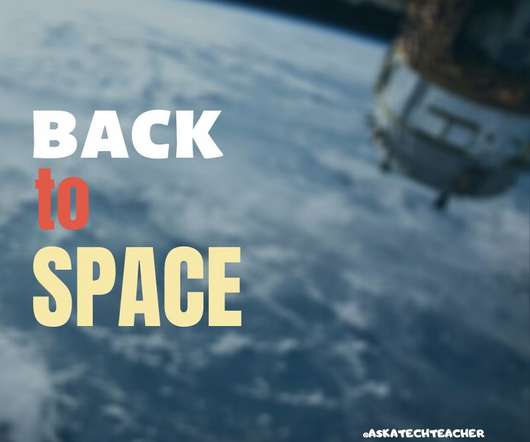In Love with Space? Here are Great Websites to Take You There
Ask a Tech Teacher
JUNE 12, 2020
This realistic webtool is an excellent scaffold for MS and HS students connecting STEM to their curiosity and excitement about space. Grammaropolis is aligned with both national Common Core standards and Texas Expected Knowledge and Skills Objectives for grades K-6. Movement in space is slow and requires patience and precision.















Let's personalize your content